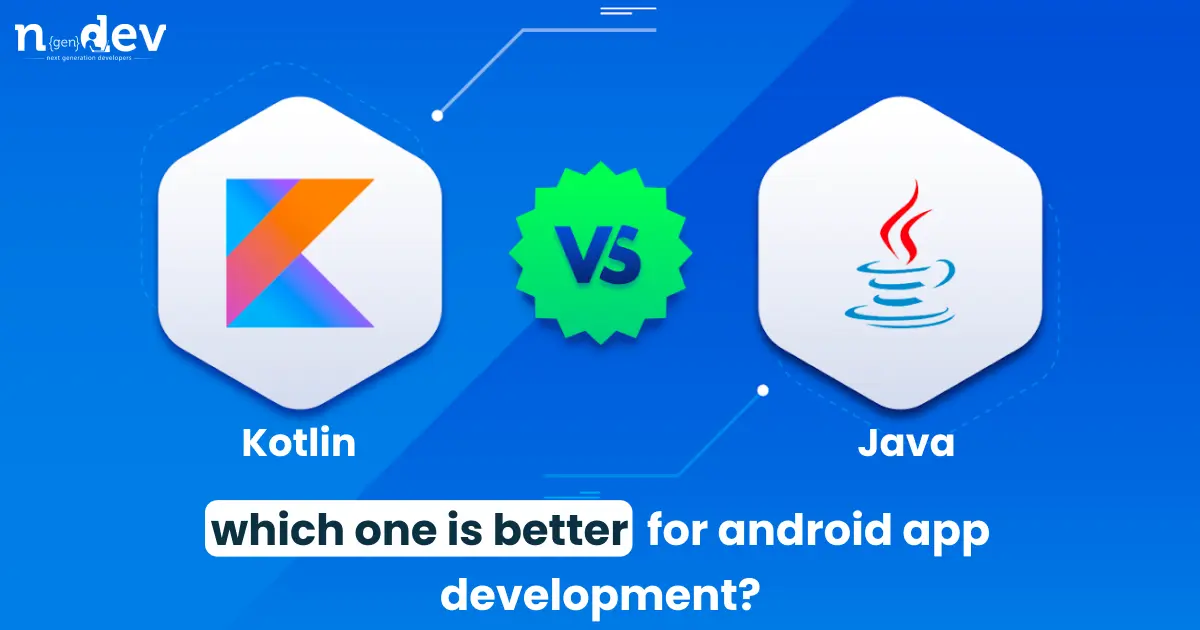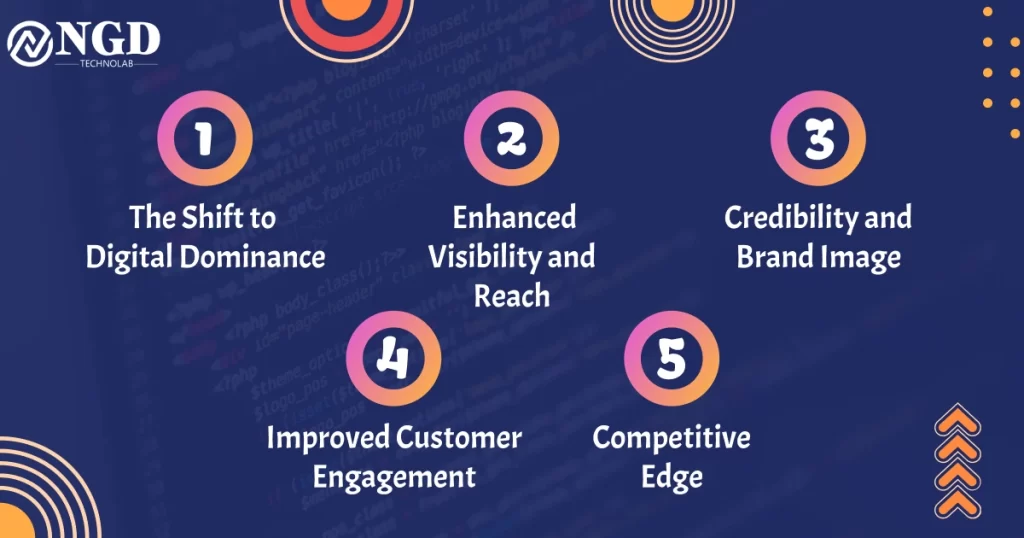Kotlin vs. Java: which one is better for android app development?
- Published On - October 20, 2023
-
Harshid Patel

As the world’s most widely used smartphone operating system, Android has surged in popularity, leading to an increase in Android app development. In response to the growing demand for innovative mobile applications, businesses are at a crossroads, wondering what programming language to choose to create mobile apps that truly stand outs.
In the realm of mobile application creation, the ability to converse in multiple languages is not an option. Hence, it becomes paramount to discern which of the two, Kotlin or Java, reigns supreme. Let’s embark on a journey to dissect the virtues and vices of both, to uncover the ideal choice for your Android application development endeavors.
Why Choose Kotlin for Android App Development?
When considering Kotlin for Android app development, you’re embracing a modern, expressive, and safer programming language. Kotlin boasts concise syntax and aims to eradicate common programming errors by design. It’s fully interoperable with Java, allowing a gradual transition for existing projects. In terms of community support, Kotlin has been gaining momentum, and it offers exciting features like extension functions and data classes.
Why Choose Java for Android App Development?
Java, the veteran of Android development, offers a vast array of libraries, tools, and a massive developer community. It’s known for its platform independence and robustness. Java’s familiar syntax can be an advantage for developers with a Java background. Additionally, it’s well-suited for large, long-term projects and legacy codebases.
Performance and Efficiency
Kotlin’s performance in Android development is noteworthy. Its concise syntax and avoidance of boilerplate code lead to efficient execution. Kotlin is built to be fully compatible with Java, ensuring a seamless transition for developers who want to adopt it. Moreover, it supports modern language features like inline functions and smart casts, enhancing runtime performance.
Java’s performance in Android development is tried and true. It’s known for its efficiency, reliability, and speed. Java apps can run smoothly even on older Android devices. However, its verbose syntax and ceremony might make development less efficient when compared to Kotlin.
Syntax and Code Readability
Kotlin’s concise syntax is one of its standout features. The reduction of boilerplate code makes the codebase cleaner and easier to read. The language encourages good coding practices, such as immutability and null safety, further enhancing code readability and maintainability.
Java’s syntax is widely recognized and has been in use for decades. It might feel familiar and comforting to developers with a Java background. However, its verbosity can lead to more extended code, potentially reducing code readability and maintainability.
Integration and Library Support
One of Kotlin’s strengths is its seamless interoperability with Java. Existing Java libraries can be used within Kotlin projects without any hassle. This flexibility eases the transition to Kotlin, as you can adopt it incrementally while still leveraging your existing Java codebase.
Java, with its extensive history in Android development, offers a massive library ecosystem. Whatever functionality you need, chances are there’s a Java library for it. This support can significantly speed up development, as you won’t need to reinvent the wheel for common tasks.
Development speed and Productivity
Kotlin’s concise syntax and modern language features contribute to increased development speed. Features like extension functions and data classes allow developers to write cleaner and more efficient code. Less code means faster development and fewer bugs to deal with.
Java’s familiarity can be a productivity boost for developers with a Java background. However, the verbosity of the language can slow down development, especially for new projects. While Java’s tools and libraries can aid productivity, Kotlin’s modern features might offer a more streamlined experience.
Ecosystem and Community
Kotlin’s developer community has been rapidly expanding. It’s backed by JetBrains and has gained popularity due to its modern approach to Android app development. A large and active community ensures that you’ll find ample support, libraries, and resources.
Java’s presence in the Android development ecosystem is long-standing and unwavering. It has a massive, well-established community. For developers, this means abundant resources, including forums, tutorials, and a wealth of open-source projects to draw from.
Compatibility and Legacy Projects
Kotlin’s interoperability with Java ensures compatibility with legacy code. This is a crucial factor if you’re transitioning from Java to Kotlin or working on projects that require interaction with older codebases.
Java has a deep-rooted legacy in Android app development. It’s the language that started it all and continues to power many existing apps. If you’re working with or maintaining legacy projects, Java is the natural choice.
Conclusion:
In the epic battle of Kotlin vs. Java for Android app development, there’s no one-size-fits-all answer. Both languages have their strengths and are well-suited for different scenarios. Your choice should depend on factors like project requirements, team familiarity, and long-term goals.
In conclusion, Kotlin offers a modern, concise, and expressive language for those looking to boost development speed and maintainable code. On the other hand, Java is the dependable veteran, perfect for large, legacy projects and developers with a background in Java.
Frequently Asked Questions:
It depends on your project and preferences. Kotlin offers modern features and concise syntax, while Java is a robust choice with a longstanding legacy.
Many find Kotlin easier to learn due to its concise syntax and modern features, especially if you’re new to programming.
Yes, you can. Kotlin is fully interoperable with Java, allowing you to use both languages in a single project.
Kotlin’s concise syntax and modern features make it a good choice for small, rapid projects. However, Java can still be used effectively in such projects.
Kotlin’s concise syntax reduces boilerplate code, enhancing code readability. Java, while familiar, can be more verbose, potentially impacting readability.
Get Free consultation and let us know about your custom web and Mobile App project idea

Over 14+ years of work experience, we have built 210+ web and mobile apps
We can help you with
- Dedicated Developer
- delivering high-quality development
- Custom Mobile App Development
- Innovative Solution For Startups and Enterprise


